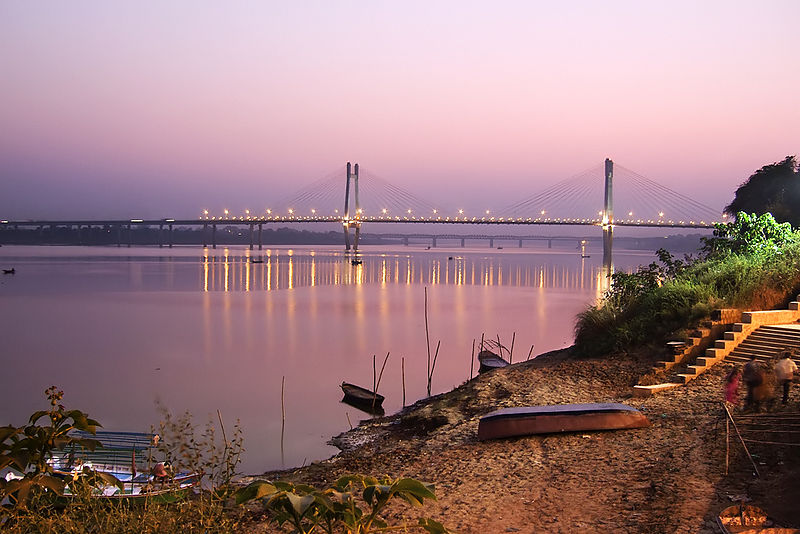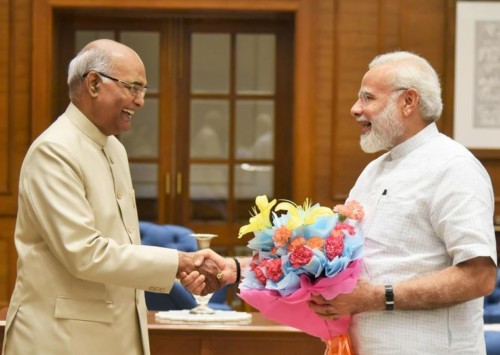City of Allahabad restores its name as Prayagraj after 443 years
The Indian city of Prayag that was named as Illahabas in 1575 by the Mughal emperor Akbar (that later became Allahabad), recently regained its name as Prayagraj after the Uttar Pradesh government proposed the idea to the cabinet. While on one hand the decision is celebrated by Hindus, on the other it is opposed by opposition political parties and some people who believe that the move is irrelevant.
One of the oldest cities in Uttar Pradesh and home to India’s first Prime Minister Jawaharlal Nehru, Allahabad has been officially renamed as Prayagraj after chief minister Yogi Adityanath’s Cabinet cleared the proposal. The government announced that ‘Prayagraj’ would now be used to promote the Indian culture on an international scale.
While many in the city have welcomed the move, others are calling it irrelevant and a political gimmick just before the Lok Sabha elections. The decision of switching from Allahabad to Prayagraj has drawn protests from political parties like the Congress and Samajwadi Party. The change is receiving mixed reaction from intellectuals, teachers, literary persons, lawyers and politicians in the city.
Prayagraj was named Allahabad during the Mughal era, around 500 years ago. The place is a confluence of three Holy rivers namely the Saraswati,Yamuna, and Ganga,hence the name Prayagraj.People who have zero understanding of our history and traditions would question the move:UP CM pic.twitter.com/naXfb1dLC4
— ANI UP (@ANINewsUP) October 16, 2018
We should not be changing names. Allahabad should remain Allahabad, but we should be told the truth it used to be Prayagraj before a communal bigot ruler named Akbar forcefully changed its name. If that truth be told upfront; truth of Yogi bigotry would follow automatically.
— Yashwant Deshmukh ?? (@YRDeshmukh) October 16, 2018
Apart from scoring political brownie points, let us not forget that changing names of cities leads to massive (unnecessary) expenses.
Just think of the signboards on highways which currently read Allahabad that'll need to be changed to #Prayagraj.
— Meghnad (@Memeghnad) October 16, 2018
According to the legends, in 1575, Mughal king Akbar was impressed with the strategic location of Allahabad (then Prayag) due to confluence of two of the mightiest rivers Ganga and Yamuna there, and also the religious significance of the place. During his visit to the city, he named it as Illahabas, as he maintained that it was a place of Allah (God). However, Illahabas soon had another variation in Illahabad. Coins minted during Akbar’s rule have both names. By the time of Shah Jahan, the name Illahabad had become popular. When the British colonial rulers established their rule over the region, Illahabad became Allahabad in English written in Roman script.
When cities re-brand, a lot of expenses are incurred, which is also a waste to the society and the environment – highway traffic signs out into neighbouring states will be changed, and railway signage, systems and paperwork across the country will be updated. Government and business stationery will be destroyed and remade at a cost to the environment. The biggest cost may be in re-educating outsiders about the name change, an intangible line item whose true costs will never be known.
Like any other medium-size city, Allahabad too has problems of poverty, underdeveloped infrastructure, potholes, open sewers, increasing crime rates, etc, which are yet to be completely solved by the government. What Allahabad also lacks is opportunities for students – besides three to four government institutions, there aren’t many, which could provide good quality higher education.
This is not the first time that the government of a state has renamed its city. The late UR Ananthamurthy may go down in history not for his various works of Kannada literature, but also as one who fought for successfully lobbying the Karnataka government to rename ten cities, including Bangalore. He was not alone in this quest to incite a combination of ethnic, cultural and nationalist emotions to undo names that had been well recognised around the world. Calcutta, Cochin and Baroda were all butchered out of the global lexicon simply to satisfy the whims and fancies of elitists and local politicians in the past.
This is also not the first time that Uttar Pradesh alone has witnesses name changes by its ruling government. In 2012, eight districts’ names were changed by the Samajwadi Party government led by Akhilesh Yadav after they were renamed by the previous regime of Mayawati. In August, the Uttar Pradesh government renamed Mughalsarai railway station as Pandit Deen Dayal Upadhyaya Junction railway station, after 156 years.












